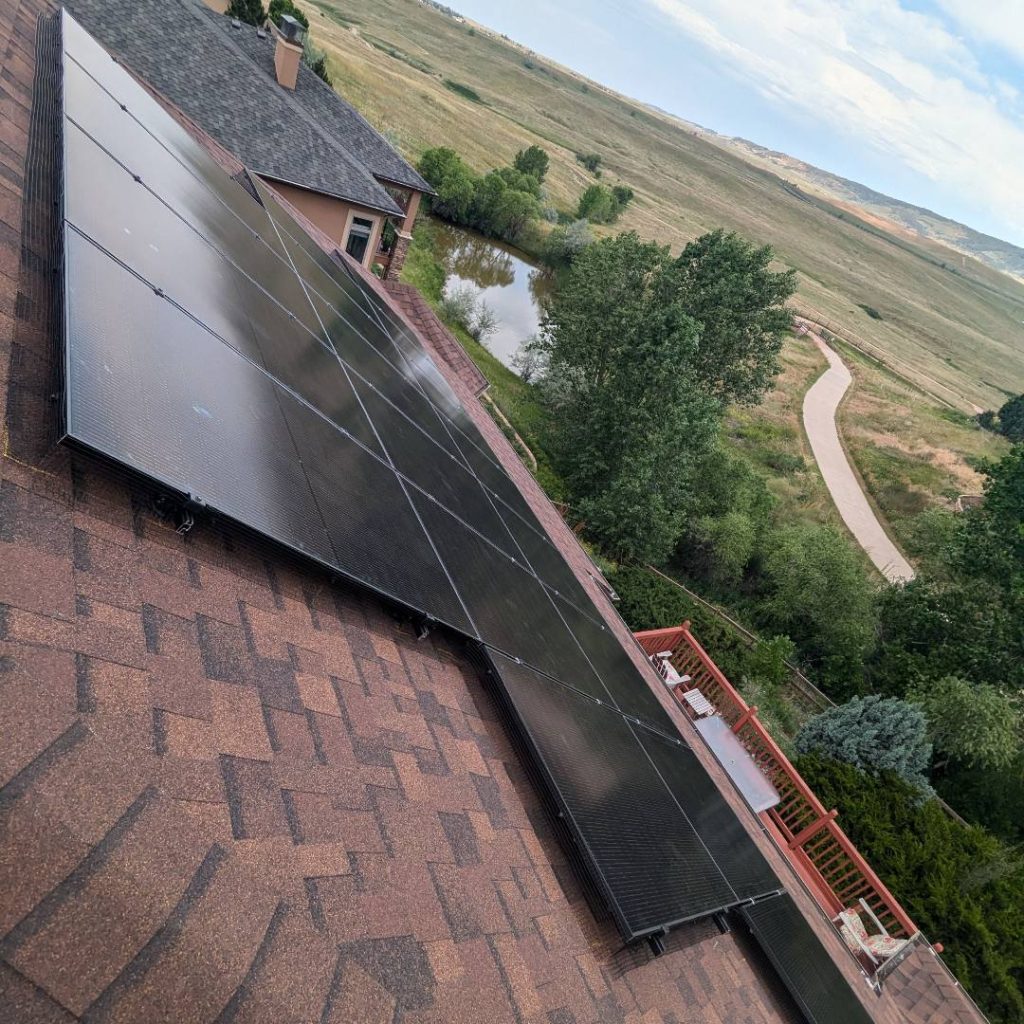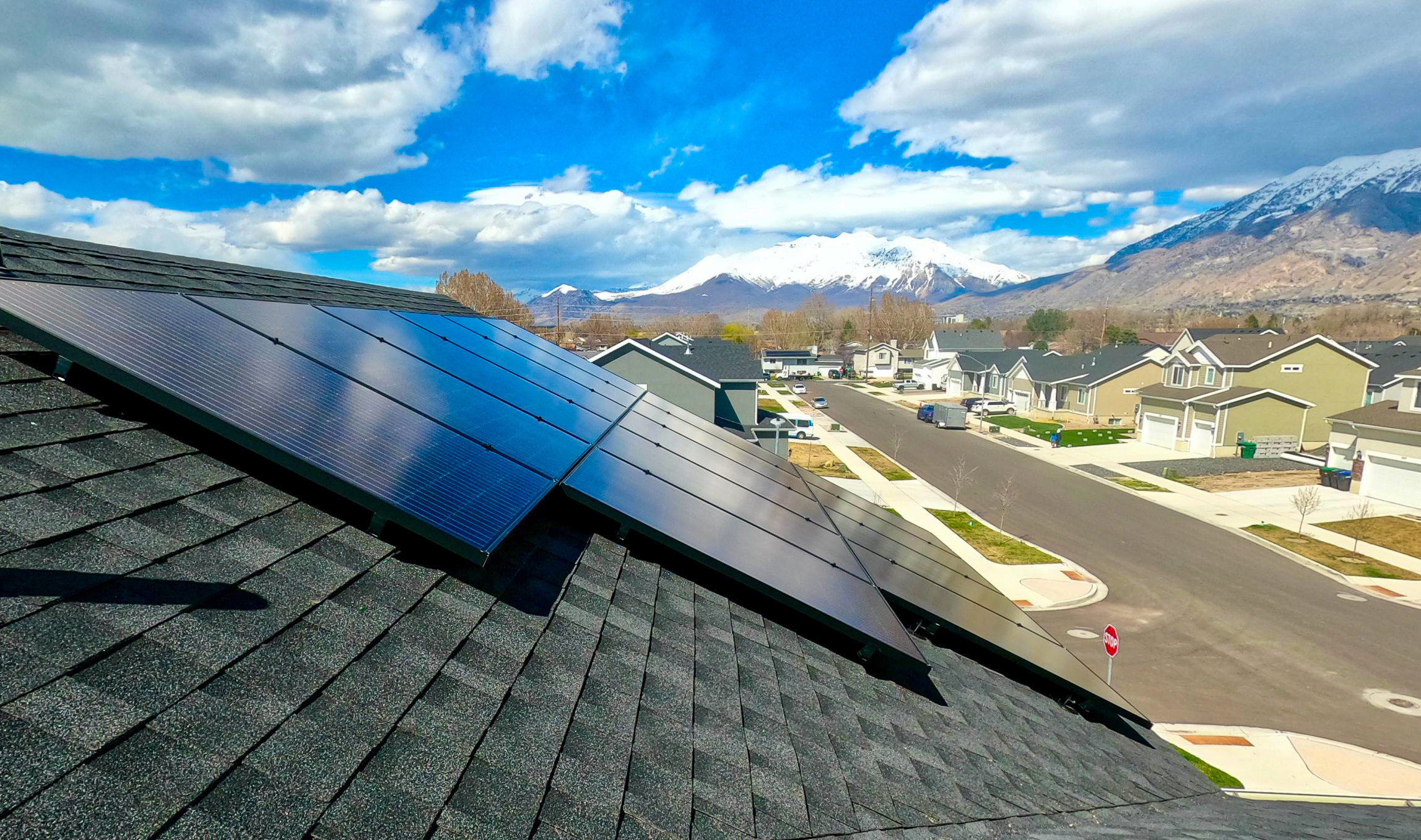
Colorado Springs Utilities Rates Are Increasing in 2026: What You Need to Know
CSU rates rise in 2026 with new Energy Wise time-of-use pricing. See what’s changing and how solar can help control energy costs. Learn more.

If you’re thinking about installing residential solar panels, the first step is to evaluate your home’s solar potential. Houses with strong solar potential will generate enough electricity to make solar panels worth the investment, while houses with poor solar potential may never break even.
A professional evaluation is the best way to find out whether your house is good for solar panels. But you can get a basic idea of your home’s solar potential by looking at a few key factors.
If your roof is old or in poor condition, you should consider replacing it before installing solar panels. Installing solar on an aging or damaged roof could mean removing and reinstalling your solar panels when your roof inevitably needs to be replaced, which is expensive.
The direction your roof faces impacts how much sunlight you receive and, therefore, how much solar electricity you can generate. South is the best roof direction for solar panels, but that doesn’t mean you’re out of luck if your roof faces a different direction. East and west-facing roofs can also be a great fit for solar panels. North-facing roofs are the least ideal for solar panels. If your roof faces due north, rooftop solar panels might not be the best choice for your home.
The best roof for solar panels is one with no shade. Shade from trees, surrounding houses or buildings, chimneys, and other obstructions blocks sunlight and reduces the amount of electricity your solar panels can generate. If your roof is partially shaded, we can design a system that maximizes the sunny areas and avoids the shade, but full shade will be a problem.
The size of your roof determines how many solar panels you can install and how much electricity you can generate. Since roof size tends to correlate with home size and electricity usage, most houses tend to have enough roof space for the amount of solar panels they need. But obstructions like chimneys and skylights can limit the amount of usable roof space. The best roofs for solar generally have simple designs and limited obstructions.
Once you’ve determined that your roof is good for solar, you have to decide whether you use enough electricity to make a solar installation worthwhile.
Generally speaking, the more you spend on electricity, the more you’ll save with solar panels. That means households that use a lot of electricity are typically the best fit for solar. If you have a lot of power-hungry appliances, like a heat pump, EV charger, swimming pool, or hot tub, solar panels make sense for your home.
Small houses that use less electricity can still benefit from solar power, however. Since you need less power, you can install a smaller, more affordable system that will be easier to pay off.
As electricity rates increase right alongside our electricity demand, solar power is starting to make sense for more and more homes. The vast majority of Colorado houses consume enough electricity to make solar panels worth the cost.
The money solar panels can save you is often touted as the main reason to go solar, but it’s not the only benefit. When paired with battery storage, solar panels keep your electricity on during a power outage. Many Coloradans consider this kind of energy independence a must.
If you experience frequent power outages, installing solar panels and battery storage could be worth it for the backup power alone. During a summer heat wave or a winter storm, backup power can be life-saving. Learn more about power outage preparedness with battery storage in our blog.
Solar Power Pros can tell you exactly how much electricity you can expect to generate with solar panels for your house in Colorado and how much you can expect to save with a free, no-pressure evaluation. We offer virtual consultations and can quickly evaluate your roof using satellites to determine whether it’s a good fit for solar panels. With over a decade of experience, our in-house team has built a reputation for high-quality work and long lasting benefits.

CSU rates rise in 2026 with new Energy Wise time-of-use pricing. See what’s changing and how solar can help control energy costs. Learn more.

MVEA electric rates increase 8.5% in 2026. Learn what’s driving the hike, how it affects your utility bill, and how solar can help you stabilize costs.